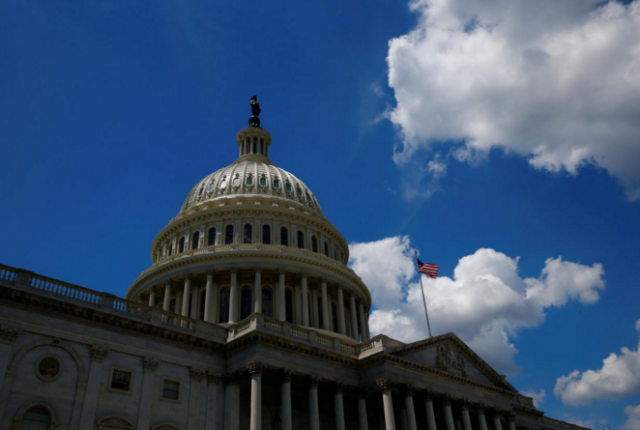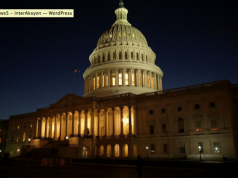WASHINGTON – The US government might not have enough money to pay all its bills on Oct. 2 if Washington does not raise a cap on federal borrowing, a respected think tank said in a report on Thursday.
The Treasury might not have enough money on that day to make a roughly $80 billion payment that will be due to a military retirement fund, according to the Bipartisan Policy Center.
Coming up short on cash on Oct. 2 could also lead the government to delay payments due that day on social security benefits and military pay, the BPC said.
The report highlights the urgency facing the Trump administration to work with Congress to raise the federal government’s $19.8 trillion cap on borrowing.
Missing payments could trigger financial turmoil and hit the US economy, possibly triggering a recession. A credit agency has warned that America’s credit rating is at risk.
“October 2 is a particularly difficult day for federal finances,” said the Bipartisan Policy Center, which is considered an expert in projecting fiscal deadlines.
Losing the ability to borrow any more on Oct. 2 would mean approximately 23 percent of funds owed by the government that month would go unpaid, dealing an immediate blow to the US economy, the BPC said.
Washington has been scraping against its debt ceiling since March, putting off payments into a few government funds so it can keep borrowing from investors and making debt payments.
The BPC noted there was “substantial uncertainty” in knowing just when Washington could stop being able to pay all its bills. It projects that date could fall between Oct. 2 and the middle of the month.
Treasury Secretary Steve Mnuchin told lawmakers in July they needed to raise the debt limit by Sept 29. President Donald Trump on Thursday described efforts to raise the limit as a “mess.” Republicans control the White House and both houses of the US Congress.
Washington has put itself through debt-limit crises several times in recent decades. In the run-up to a 2011 crisis, the Treasury looked at a range of options, including prioritizing payments, which would mean making debt securities payments at the expense of other obligations.
Former Treasury Secretary Jack Lew said in 2013 that attempting to prioritize might trigger chaos. Mnuchin told lawmakers on July 27 he had no intent to prioritize payments and that doing so “doesn’t make sense.”







